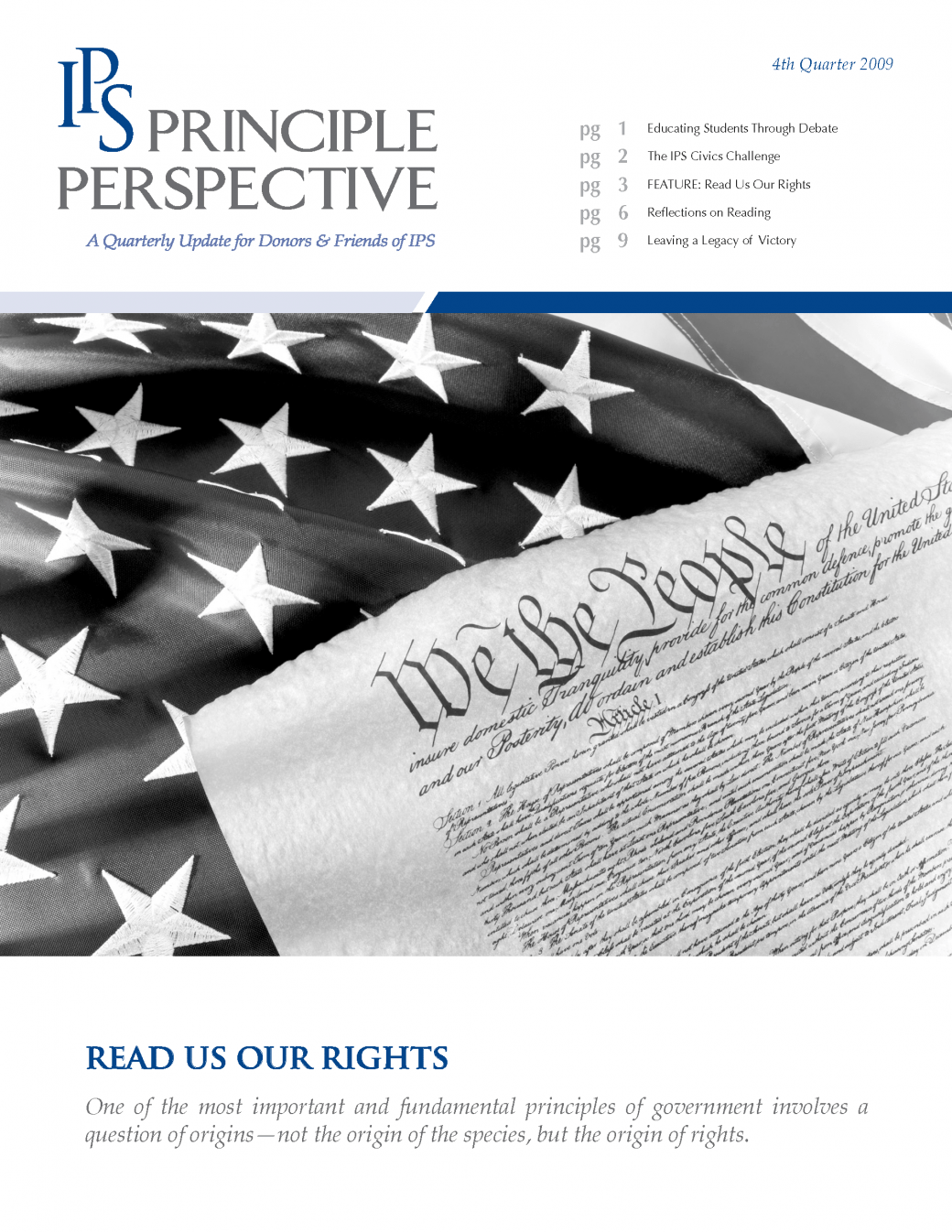Read Us Our Rights
One of the most important and fundamental principles of government involves a question of origins—not the origin of the species, but the origin of rights. It is difficult to discuss any aspect of government without addressing some question about rights. The Stanford Encyclopedia of Philosophy insightfully explains the importance and centrality of our understanding of rights:
Rights dominate most modern understandings of what actions are proper and which institutions are just. Rights structure the forms of our governments, the contents of our laws, and the shape of morality as we perceive it. To accept a set of rights is to approve a distribution of freedom and authority, and so to endorse a certain view of what may, must, and must not be done.1
I would be hard-pressed to think of a single political or economic controversy that does not have a dispute about the origin and definition of rights at its core. Banking crises, health care reform, trials for terrorists, abortion, unemployment, and overseas military policies are all questions about the source and definition of rights. A proper understanding of rights is the principle that underlies each of these issues.
The eighteenth-century American understanding of rights was a powerful limitation on the size and scope of civil government. Those who have wanted to expand the role of government have found that they must alter the historic American understanding of rights — and they have now been doing this gradually, but successfully, for most of two centuries. This alteration of America’s
founding view of rights can come in two forms: one by changing the understanding of the source of the rights, and the other by changing the definition of rights.
Read our entire in depth analysis by clicking the link below:
You will have access to the feature article in addition to topical articles
View Full Issue
